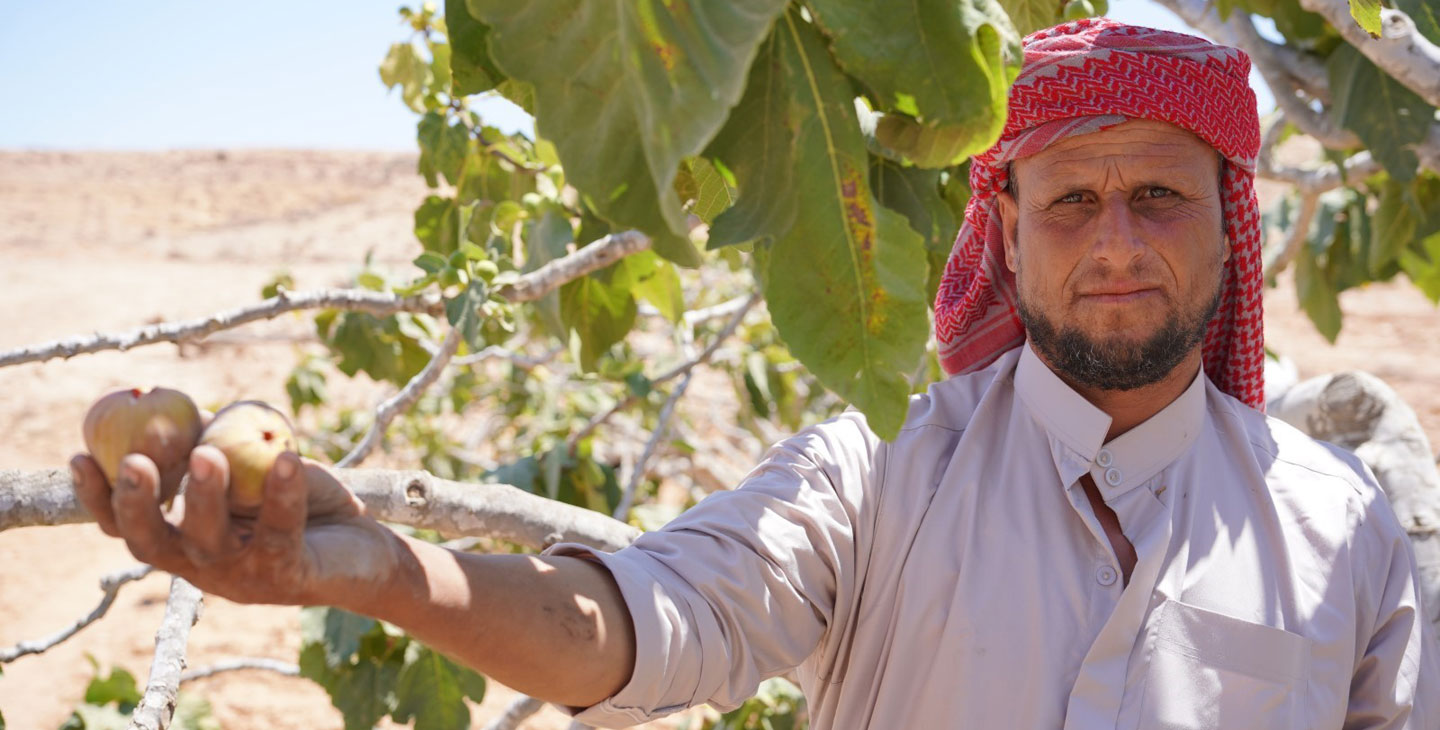In Egypt, PRIDE brings water to the wadi
IFAD Asset Request Portlet
Asset Publisher
In Egypt, PRIDE brings water to the wadi
Estimated reading time: 2 minutes
Like many Bedouin farmers, Saadawy Al-Maghwari makes a living by growing and selling figs and olives. Generations of small-scale farmers in Egypt’s northern Marsa Matruh governorate have cultivated these flavoursome fruits in the wadi – an arid valley bed that springs to life after the end of the rainy season, colouring the sand-hued hills in bright greens.
For generations, Bedouin households constructed earthen dams in wadi beds to increase rainwater infiltration to crops. Today’s erratic weather patterns – including longer droughts and intense storms and flooding – are causing land degradation, soil erosion and a drop in yields.
“The valley had very weak trees because we could not retain the water,” says Saadawy. “When the dry season hit, most of the trees would die.”
In 2021 the IFAD-funded Promoting Resilience in Desert Environments (PRIDE) project began work in Marsa Matruh in a bid to prevent further loss of crops to climate change.
Controlling the water flow
Implemented by the Egyptian Desert Research Center, PRIDE focuses on the restoration of the wadi beds through water management technologies and additional irrigation infrastructure, like cisterns and dikes.
“Improved rainwater retention has revitalized Wadi Al-Harika and significantly boosted fig production” says Saadawy, whose family of five depends on the farm’s yields.
Revegetation and the advancement of dams is leading to better rainwater distribution and infiltration into the soil. PRIDE also provides support for the construction of water storage facilities so that excess rainwater can be collected and used to irrigate during the dry season.
Limiting potential conflicts
 |
| Local tribes were consulted to ensure the success of the project. © Saleh Al Oshaiby |
When selecting the location and layout of the irrigation infrastructure it was also important to consider the valley’s geography as well as land ownership.
“Before work started, the project team established committees to represent each tribe, assess the land in the valley and pinpoint suitable dam locations,” says Saadawy.
Today, the new dam locations allow for fair water distribution to all communities and avoid sources of conflict. To ensure the success of the project, agreements were drawn up and signed by tribe members.
In late September, when the harvesting season came to an end, local farmers said they were satisfied with the results. “After the dams were constructed, the trees turned green and produced more fruits,” says Nawara Omar Aqeela. Like most women in her area, Nawara was key in helping with the harvest. “In the past, a fig tree would yield only a basket of figs every other day, but now I can harvest two or three baskets per tree.”
Going forward, PRIDE aims to support the rehabilitation of 100 kilometres of wadis in Marsa Matruh to improve and expand agriculture production for around 1,900 Bedouin families and support them as they thrive.
Publication date: 07 November 2023